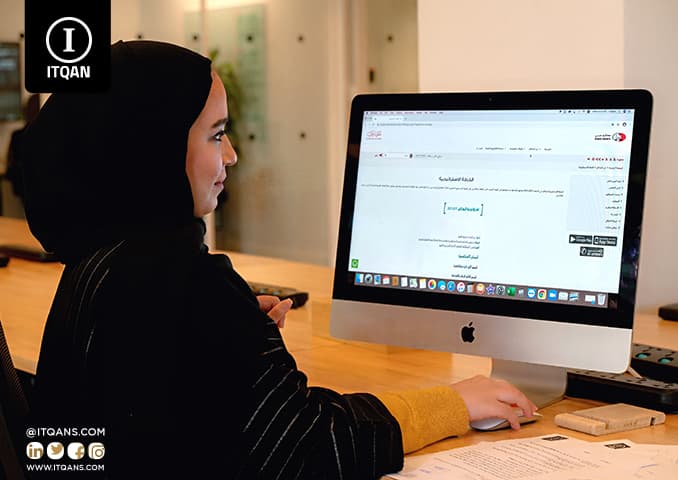Issuing a trade license is one of the basic steps that any investor or business owner must take when establishing a new project. A trade license is an official permit that allows individuals and companies to practice their business activity legally, and contributes to protecting their rights and enhancing trust among dealers. In the United Arab Emirates, especially in Dubai, there are a set of procedures and requirements that must be followed to obtain this license.
The process of issuing a trade license begins with determining the type of business activity desired, as licenses vary according to the nature of the work, whether commercial, industrial, or service. After that, the investor must submit the necessary documents, such as personal identification, the proposed company name, and the lease contract for the workplace. It is also necessary to ensure that the appropriate trade name is available, which must be in line with local laws and regulations.
The application is reviewed by the competent authorities, and upon approval, the trade license is issued. A trade license in Dubai provides many advantages, including the ability to open a bank account, deal with other companies, and obtain additional permits if necessary.
Obtaining a trade license is a pivotal step towards success, as it helps secure the legal basis for the business and helps build a strong reputation in the market. In addition, the license allows the business owner to focus on developing his business and attracting customers, which contributes to achieving his business goals and increasing his profits. In this article, we will review in detail the steps and procedures required to issue a trade license in the UAE, and the importance of this process in the business world.

جدول المحتوى
ToggleHow to issue a trade license in Dubai
Issuing a trade license in Dubai requires following several steps and procedures. Here are the general steps to issue a trade license in Dubai:
Choose the business activity: Determine the type of business activity you wish to practice. You must ensure that the activity is in compliance with local permits and laws.
Choose the legal form of the company: There may be different forms of companies such as a sole proprietorship or a limited company. Choose the appropriate legal form for your business.
Choose the trade name: Choose an appropriate name for your business and ensure that it is in compliance with local laws and is not repeated.
Determine the main location: Determine the location of the company in Dubai, whether in a free zone or in the city’s commercial areas.
Prepare the required documents: Prepare the documents required to apply for a trade license, such as a copy of the passport, business plan, insurance documents, and others.
Submit the license application: Submit the application for a trade license to the relevant authority, such as the Department of Economic Development in Dubai.
Obtain the necessary approvals: Once the application is submitted, the competent authority may request an examination or obtain additional approvals before issuing the license.
Signing agreements and insurance: After approval, you may need to sign agreements and insurances before receiving the commercial license.
Paying fees: Pay the fees required to issue the commercial license.
Receiving the commercial license: After fulfilling all the conditions and procedures, you will obtain a commercial license that allows you to practice your commercial activity in Dubai.
Types of commercial licenses in Dubai
In Dubai, there are several types of commercial licenses that individuals and companies can obtain according to the type and size of the commercial activity they wish to practice. Here are some common types of commercial licenses in Dubai:
Multi-activity commercial license (Commercial License): This license allows the practice of a variety of commercial activities. Suitable for companies that wish to provide services or sell various products.
Professional License: This license is designated for individuals who practice certain professions such as doctors, lawyers, accountants, engineers, and others.
Industrial License: Allows companies to produce goods and products in factories and industrial facilities.
Tourism License: Allows companies to provide tourism services such as tours, hotels, and other tourism services.
E-commerce License: Allows businesses to sell products and services online without the need for a physical store.
Marketing License: Allows businesses to offer marketing and advertising services to customers.
Contracting License: Allows businesses to provide contracting and construction services.
Professional Services License: Allows businesses to provide professional services such as business consulting, training, and mentoring.
Cost of Issuing a Commercial License in Dubai
The cost of issuing a commercial license in Dubai depends on several key factors, including:
Type of License: There are different types of commercial licenses (such as a general commercial license, an industrial license, a professional license), and each type may require different fees based on the activity.
Location: The cost may vary depending on the geographical location where you wish to set up your business, whether in a free zone or on the mainland.
Company Size: Larger companies or those requiring more employees may face higher costs.
Government Fees: These include fees for registration, the license, and any additional permits or approvals that may be required.
Office Rent: The cost of renting an office or workspace may play a role in the overall cost. Some free zones offer virtual offices at varying prices.
Labor: The costs of registering employees and obtaining work visas for them can also affect the overall cost.
Legal advice: If you require legal advice or assistance in preparing documents, these costs may also be added.
Additional requirements: Some businesses may require special requirements such as obtaining additional licenses or certain certificates, which increases the cost.
In conclusion, issuing a commercial license in Dubai is a vital step for any investor or business owner seeking to establish a business in any region. The commercial license represents the legal identity of the company, allowing it to practice its activities in an official and transparent manner.
The process of issuing a commercial license requires compliance with a set of procedures and requirements, such as submitting the necessary documents and determining the type of license appropriate for your business activity. Commercial licenses vary between a general commercial license, a professional license, and an industrial license, allowing investors to choose the one that best suits their needs.
By obtaining a license, the doors are opened for investors to achieve commercial goals and expand their business. The license also provides legal and rights protection, which enhances the confidence of customers and suppliers in the business.
Moreover, the commitment to issuing a commercial license reflects the keenness of business owners to comply with local laws and regulations, which contributes to building a good reputation and enhancing opportunities for success and growth.
In general, obtaining a commercial license is not just an administrative procedure, but rather a strategic step that contributes to establishing a solid foundation for business. Therefore, investors are advised to take advantage of the assistance available from commercial services offices or government agencies, to ensure that the correct procedures are followed and obstacles are avoided.
Ultimately, investing in issuing a commercial license is an investment in the future, as it enables businesses to flourish and grow in a competitive environment.
Top FAQs about the cost of issuing a commercial license
What factors affect the cost of issuing a commercial license?
The cost depends on the type of license, location of the activity, size of the company, government fees, office rent, and number of employees.
Does the cost of a license vary by type of business activity?
Yes, each type of business activity (commercial, industrial, professional) may require different fees based on local regulations.
What are the government fees associated with issuing a commercial license?
Government fees include registration costs, licensing fees, and any additional permits or approvals that may be required.
Are there additional costs that I should be aware of?
Yes, additional costs may include legal advice, office rent fees, and work visa costs for employees.

















